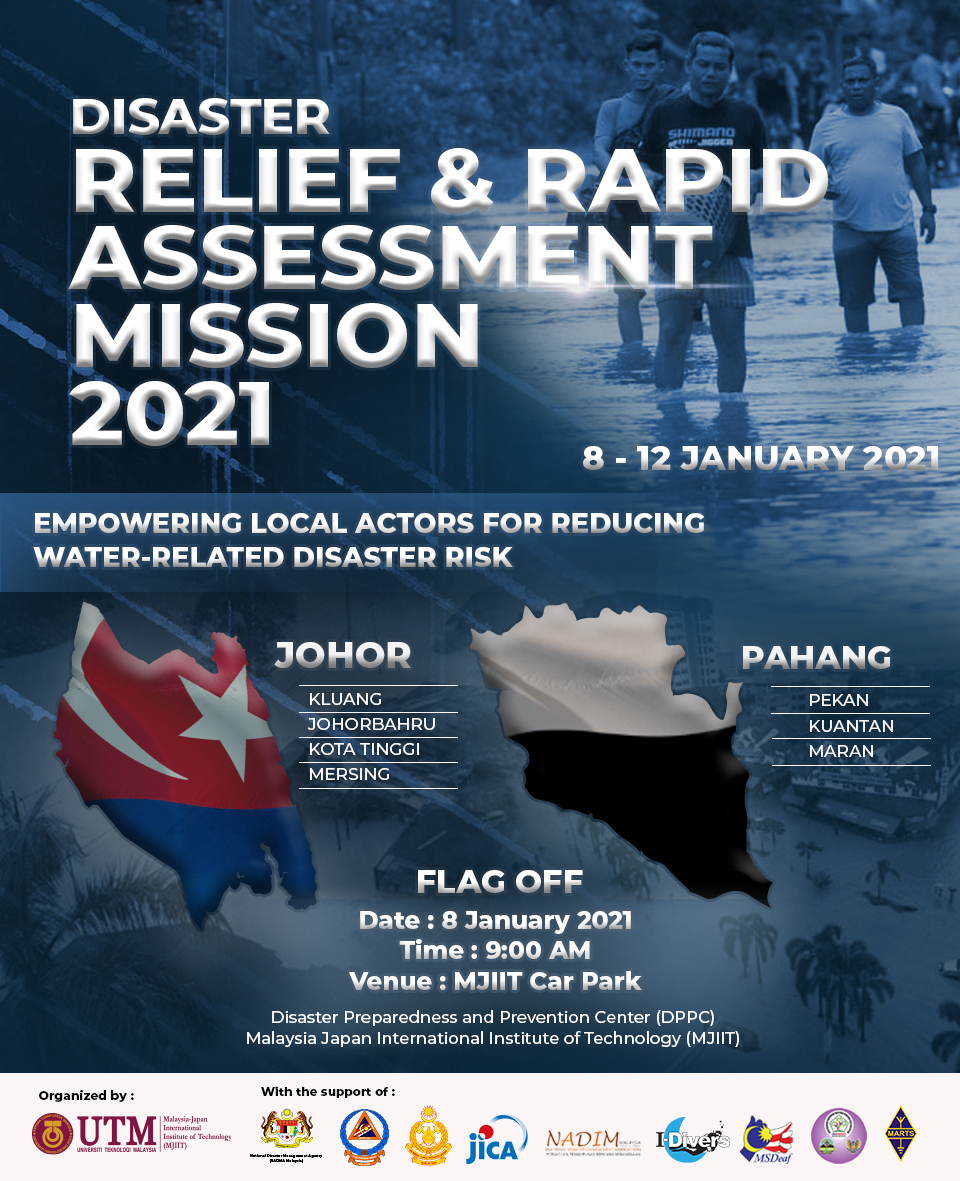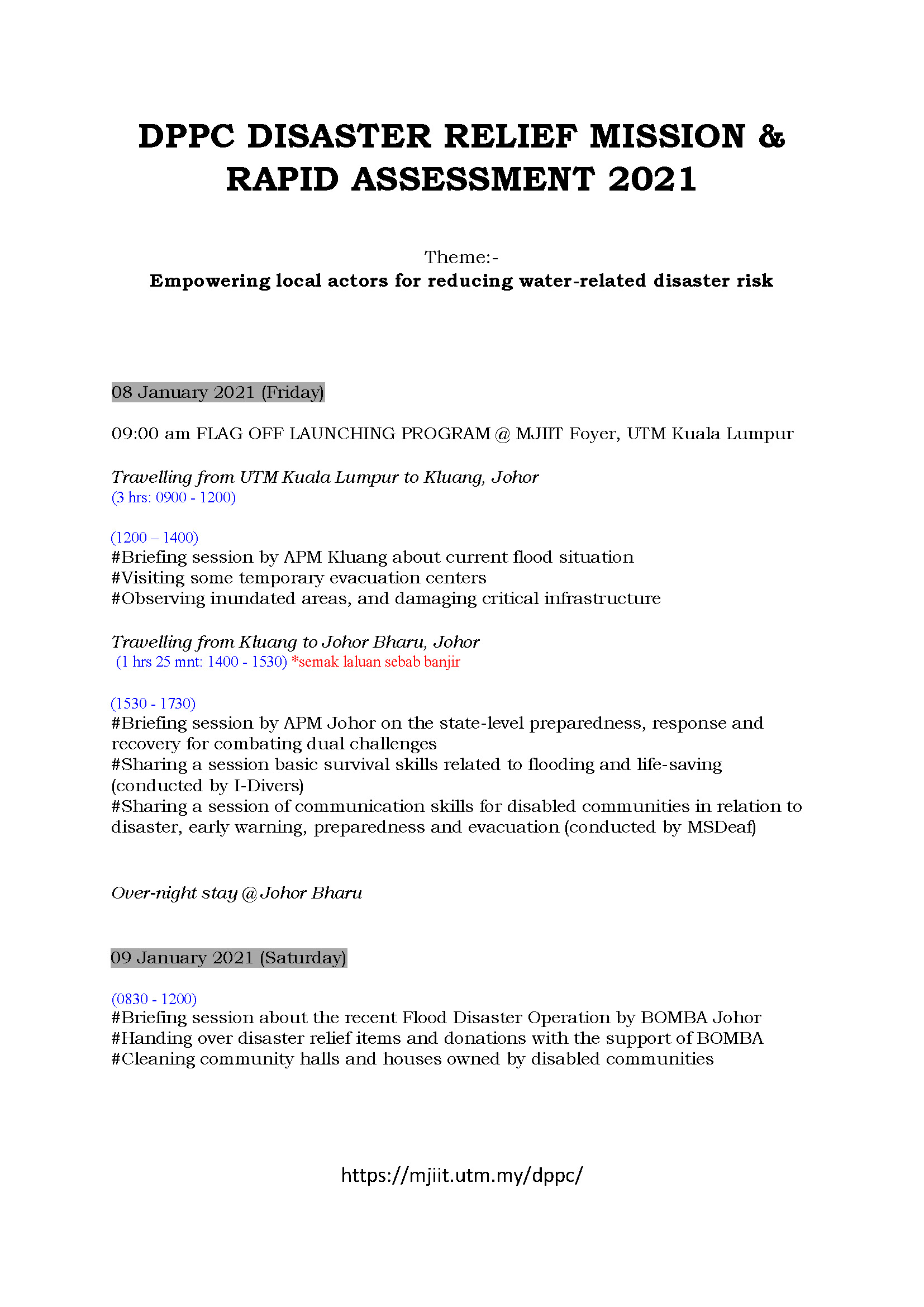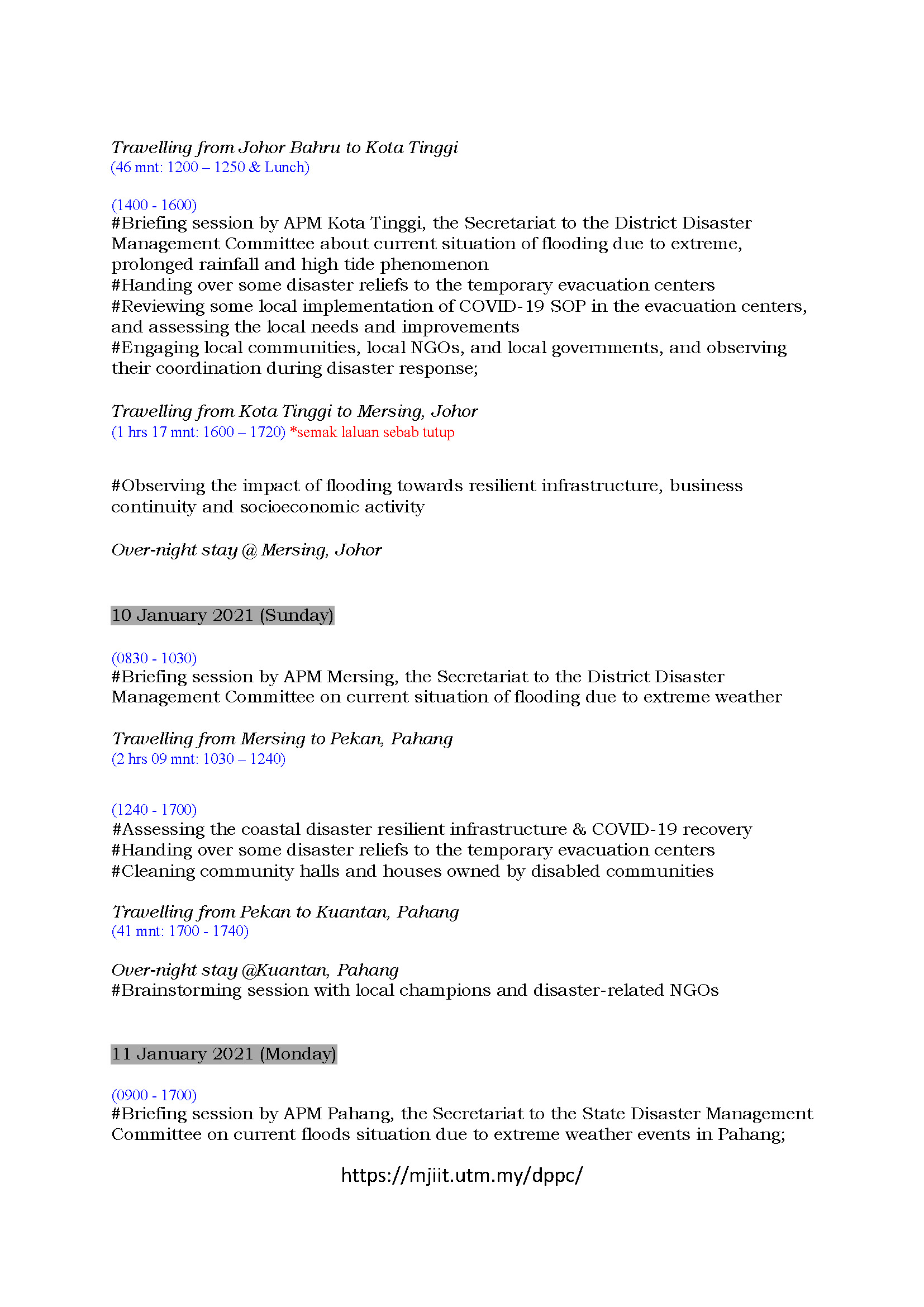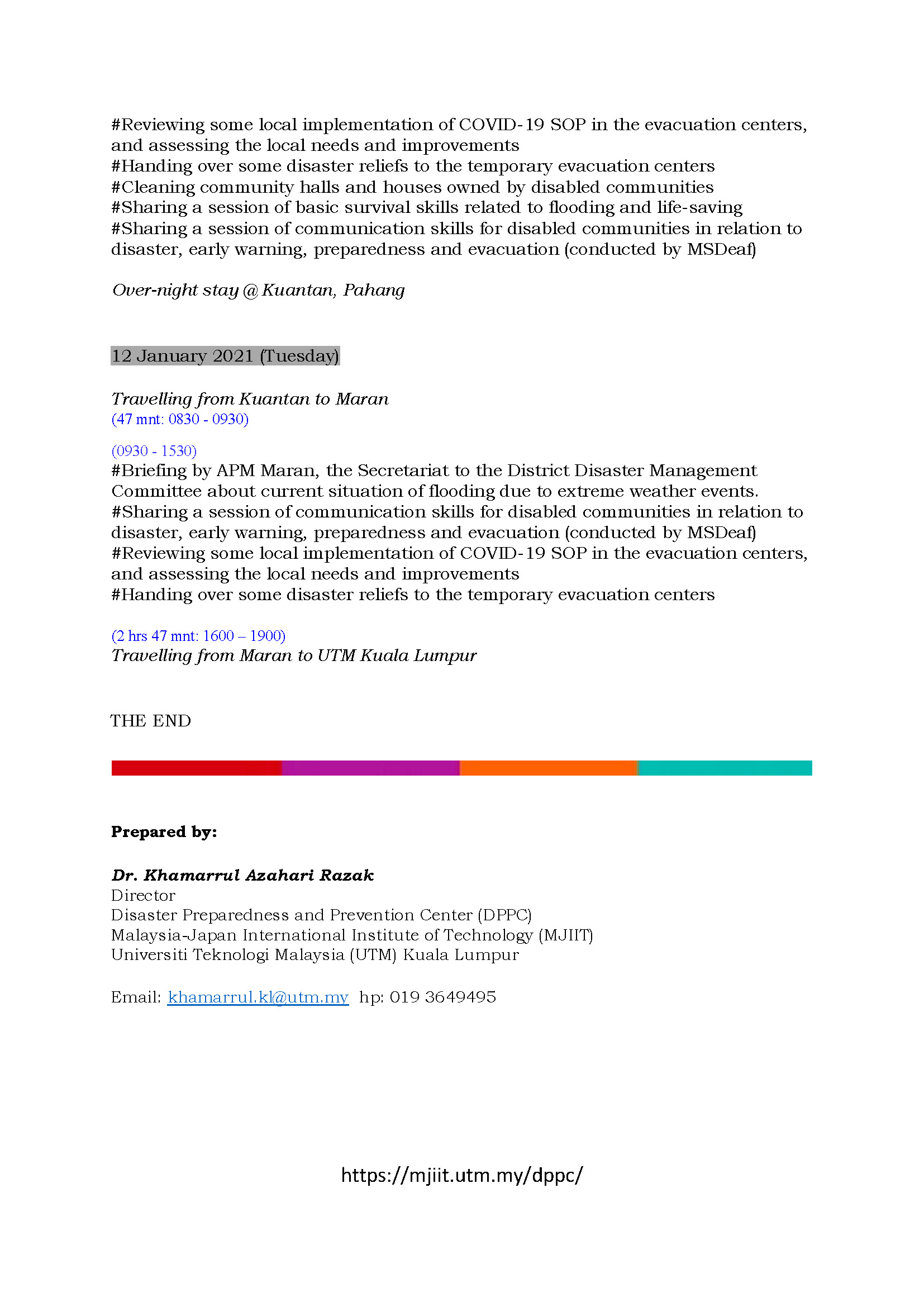DATE: 8 – 12 JANUARY 2021
LOCATION: KLUANG – JOHOR BAHRU – KOTA TINGGI – MERSING – PEKAN – KUANTAN – MARAN
The Disaster Preparedness & Prevention Centre (DPPC), Malaysia – Japan International Institute of Technology (MJIIT), Universiti Teknologi Malaysia (UTM) Kuala Lumpur will be organizing the DPPC Disaster Relief & Rapid Assessment Mission 2021 that will be held from 8 until 12 January 2021 that covers various locations in Johor and Pahang which affected by the recent flood. This tour aims at observing the impacts of recent monsoons resulting in many riverine floods, landslides, and high-tide phenomenon related disaster in the most developing states, e.g. Johor and Pahang. We also aim at exploring good practices, benchmarking local commitments, understanding needs and demands for emerging risk, climate-induced disaster, cascading hazards, and community-led disaster risk reduction in the most vulnerable states to extreme weather, environmental degradation, rapid urbanization, and anthropogenic activity. This program also reflects the progress of achieving global target G on multi-hazard early warning system, and disaster risk information and assessments to the people, as set by 2030. This program highlights co-design and co-develop practices of local DRR resilience strategies towards rejuvenating DRR investment, and promoting a quintuple helix innovation model on public-private-academia-civil society characterized by environmental disaster and systemic risk. A multi-sectoral engagement, benchmarking good practices, field reconnaissance and site visit are the focus of our activities with the great support of various strategic partners at federal, state and local level. This program objectives are to:
- To perform a series of disaster relief mission at targeted areas covering the most affected states with the support of the Secretariat to the District Disaster Management Committee;
-
To do a fact-finding mission and gather first-hand information about the impacts of water-related disaster in the vulnerable areas;
-
To physically observe the disaster losses and damages especially the critical infrastructure, business discontinuity, and socioeconomic impact in the ground zero;
-
To evaluate root causes of water-related disaster (floods and landslides) due to extreme weather events and land-use changes;
-
To assess the local adaptation and implementation of new COVID-19 related SOPs especially in the temporary designated evacuation centers;
-
To observe the local coordination between governments and civil society organizations/NGOs in the epicenter of the disaster;
-
To explore preventive and mitigation measures towards preparing dual challenges of water-related disaster and COVID-19 pandemic during monsoon season;
-
To understand the needs and demands by local governments, local disaster managers, and local actors for adopting better risk governance;
-
To educate and train basic survival skills related to flooding and lifesaving. This involves communicating with disabled communities;
-
To rejuvenate local DRR resilience strategies by empowering local actors and expert- and traditional knowledge, and risk-sensitive development plan of action;
-
To increase visibility of DPPC and its strategic partners in conjunction with the commemoration a 5-years anniversary of DPPC and 10-year commitment to global agenda on disaster risk reduction and resilience in Malaysia.



